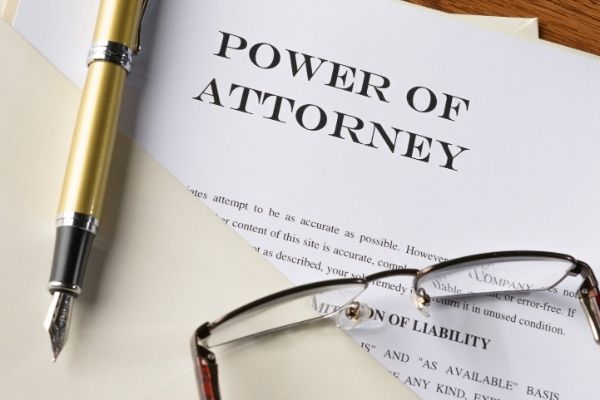Enduring Power of Attorney Toowoomba
Power of Attorney Toowoomba

There are three types of documents used in Queensland to appoint others to make certain decisions on your behalf:
- General Power of Attorney
- Enduring Power of Attorney
- Advance Health Directive
Our experienced estate planning lawyers can assist you with the preparation of the above documents in addition to your Will, or as standalone documents.
Why would I need an Enduring Power of Attorney?
An Enduring Power of Attorney is commonly required when a person is too unwell to make or communicate their decisions, or to organise their own health or financial matters.
General Power of Attorney
A general power of attorney is a legal document that gives one or more people you nominate specific authority to make financial decisions on your behalf. This power to make decisions for you stops if you lose the capacity to manage your own affairs. This kind of power of attorney is most often used for commercial transactions.
Enduring Power of Attorney
An enduring power of attorney continues in the event that you can’t manage your affairs and covers both financial and personal or health decisions. If you have an accident or illness and can’t make decisions for yourself, the enduring power of attorney gives decision making power to the person you’ve nominated, so it’s a very important document for everyone, young and old alike. The kinds of decisions your attorney can make include:
- financial attorney: paying bills, dealing with Centrelink, taxation, investments, legal matters and property management
- personal/health attorney: your living arrangements, your health care, your diet and dress
Are you prepared for the future? Make an appointment.

Medical Power of Attorney Queensland
A medical power of attorney in Queensland is referred to as an Advance Health Directive, which helps you plan what medical treatment or health care you would wish to have in the event that you are too ill to make those kinds of decisions for yourself. You can specify exactly what treatment is acceptable to you and what isn’t or you can appoint an attorney you trust to make those kinds of decisions on your behalf. You’re also able to make any special information known to medical staff through this document, such as allergies to medication or religious beliefs that impact upon the types of treatments acceptable to you.
Without an Advance Health Directive in place there is no legal means to make your wishes known about when to stop or withhold life-sustaining measures, for example CPR to keep your heart beating, assisted ventilation to keep you breathing and being fed through a tube directly into your stomach.
It is a good idea to have both an Advance Health Directive and a Power of Attorney in place. If you become so ill that you can’t make decisions for yourself, these two documents together allow your attorney to make necessary decisions on your behalf.
Book an appointment with an estate planning lawyer.
Power of Attorney & Advance Health Directive - Frequently Asked Questions
Anyone over the age of 18 who has the capacity to understand the nature and consequences of the document, who makes the decisions in the document of their own free will and who can communicate clearly what those decisions are.
When should I make a Power of Attorney or an Advance Health Directive?
You need to appoint someone your trust to make the right decisions. You can appoint more than one person if you wish, and you can specify exactly how they make their decisions – jointly or separately. For financial decisions, make sure that the person you appoint has the necessary skills to deal with your finances.
It’s really important that you discuss these documents with a lawyer who can give you professional advice about your particular circumstances. It’s also necessary for you to discuss your Advance Health Directive with your doctor, as they can explain the terminology involved. It’s also vital that you discuss your wishes with your family to avoid unnecessary conflict and stress.
Yes, it’s really important that your signature is witnessed before a lawyer, a commissioner for declarations or a justice of the peace. Your witness cannot be your attorney, a relative or a relative of your attorney, a health care provider or paid carer. With an Advance Health Directive, your witness cannot be a beneficiary under your will.
Yes, as long as you still have the decision-making capacity to do so you can revoke or change these documents. This has to be done in a legally binding way, however, so please seek legal advice.
